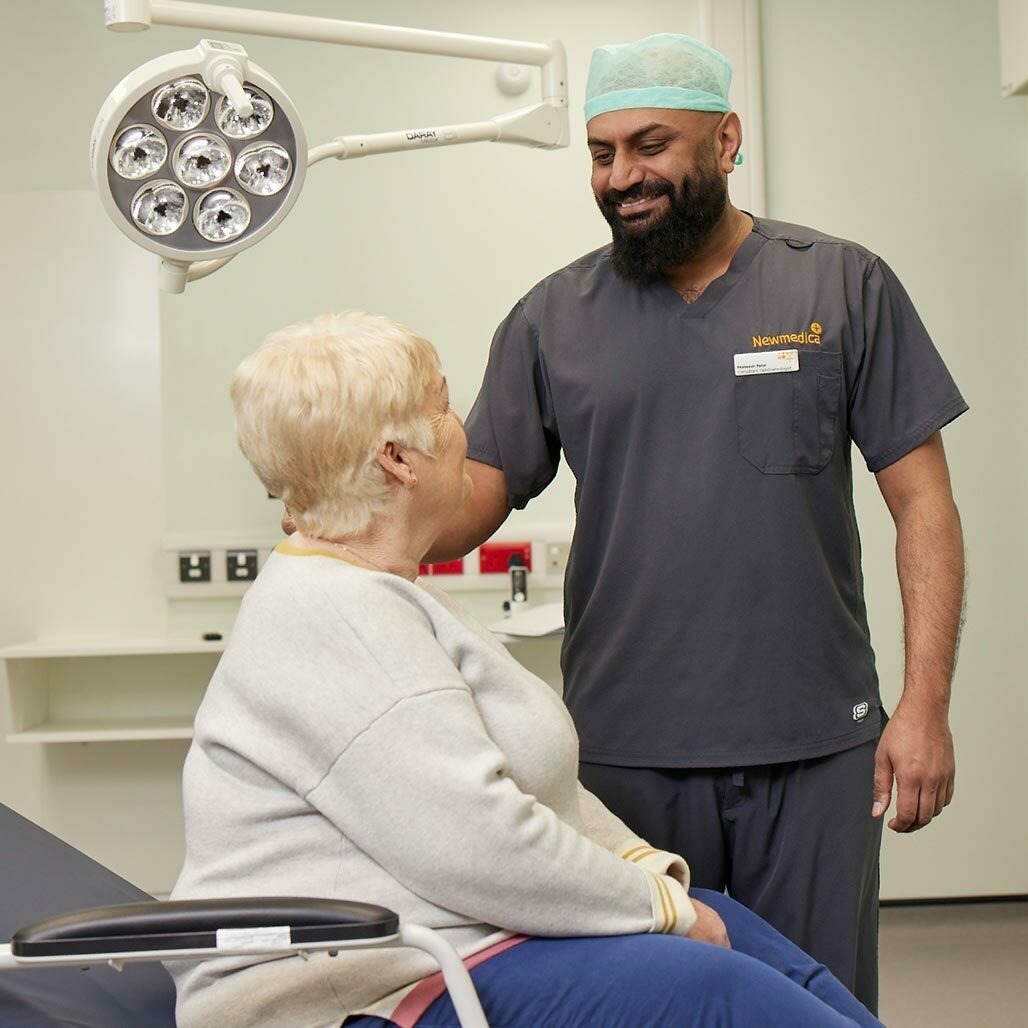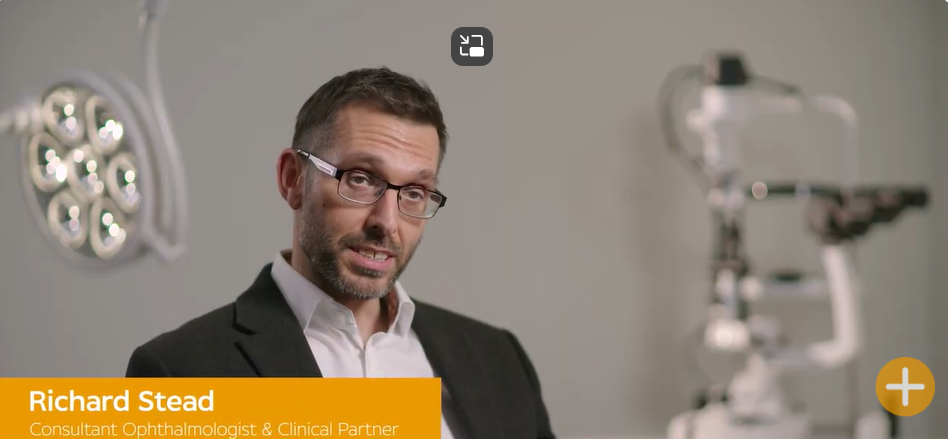They all spoke to me calmly and explained what would be happening. They were amazing.
Sarah’s story

Drop-free cataract surgery is a new approach to cataract treatment that eliminates the need for post-operative eye drops. Traditionally, after cataract surgery, patients are required to use a series of eye drops to prevent infection, reduce inflammation, and promote healing.
However, with drop-free cataract surgery, these medications are administered during the actual cataract procedure itself.
Going drop-free means you won't require eye drops after your cataract surgery. The drops are administered during the surgery, so you shouldn't require drops during your aftercare.
Yes, at Newmedica we offer a drop-free solution for patients who may physically struggle to put the drops in or may forget to do so, due to dementia or Alzheimer’s.
We offer drop-free cataract solutions as part of our commitment to providing the latest and most convenient treatment options for our patients. Our experienced surgeons use advanced techniques to ensure a smooth and effective procedure, helping you achieve the best possible outcome with minimal hassle.
However, we will only offer the solution, if we feel it's the best solution for the patient, due to the associated risks.

Drop-free cataract surgery might be the right choice for you, if you physically struggle to put the drops in or may forget to do so, due to dementia or Alzheimer’s. However, it's essential to discuss your specific needs and medical history with your consultant to determine if this procedure is the best option for you.
Along with experienced ophthalmologists, including the NHS and Royal College of Ophthalmologists, at Newmedica, we believe the use of eye drops post cataract surgery provides the best outcome for patients. While not having to put drops in after surgery will feel easier for some patients, we need to be cognisant of the well-documented increased risks of steroid injections.
Yes, drop-free cataract surgery is safe, but the main concern is that the steroid treatment, used in both post cataract surgery eye drops and drop-free cataract surgery, are known to raise intraocular pressure in 5-10% of cases. The pressure rise can be significant, which can led to damage to the optic nerve, known as glaucoma.
The benefit of the eye drop is that it’s carried out over a number of weeks, meaning it can be quickly and easily stopped or altered, to reduce or stop the pressure increase, so damage is unlikely.
With the drop-free steroid injection, it’s not possible to stop the treatment because it’s been carried out in one go. The increase in pressure may happen six to eight weeks after surgery, which means patients may not start showing increased pressure until after they’ve seen their optometrist for their post-operation assessment.
The only way to treat the pressure increase and to avoid glaucoma and long-term damage to the eye, is by surgical excision of the area of the conjunctiva, with patients needing treatment for several months.
If drop-free is recommended to you, the procedure will be performed by our experienced surgeons who ensure that everything goes smoothly. Your safety and well-being are always the top priority.
Eligibility for drop-free treatments should always be decided between the patient and the consultant. At Newmedica, our consultants who own and work in our clinics will evaluate your specific situation to determine if it's the right option for you. At Newmedica we promise to only provide the cataract treatment that is right for our patients, so if we feel the drop-free solution is the right method, we will let you know.
If you think you have an eye condition, you should see your optician or GP for a detailed assessment. They’ll go through all the options available and tell you where you can have your treatment.
The referral process will differ slightly depending on whether you want to be an NHS or private patient. You’ll find all the information you need on our NHS and private patient pages.
Are you a health care professional?
Find out how to refer a patient.
Find details about our private
options and how to get started.
Self-referring? Call 0800 4096 792
Venture House, 2 Arlington Square, Downshire Way, Bracknell, Berkshire, RG12 1WA
Park House, Woodland Park, Bradford Road, Cleckheaton, West Yorkshire, BD19 6BW
Building 720, Waterside Drive, Aztec West, Almondsbury, Bristol, BS32 4UD
Litfield House Medical Centre, 1 Litfield Place, Clifton Down, Bristol, BS8 3LS
Buckland House, Langley Business Park, 10 Waterside Drive, Langley, Slough, Berkshire, SL3 6EZ
3 Falcon Gate, Shire Park, Welwyn Garden City, Hertfordshire, AL7 1TW
Recovery from drop less cataract surgery is typically quick. Most people notice an improvement in their vision within a few days. However, full recovery can take a few weeks. It's important to follow your surgeon's instructions and attend all follow-up appointments to ensure a smooth recovery.
Yes, both eyes can receive drop less treatment, either at the same time or in separate procedures. Your eye doctor will discuss the best approach for your specific needs. It's all about finding the most convenient and effective solution for you.


